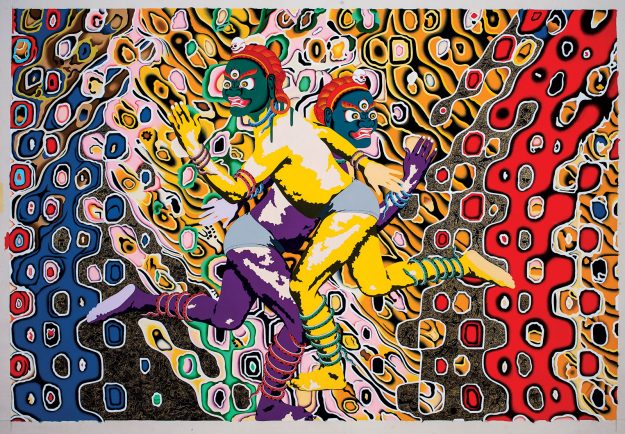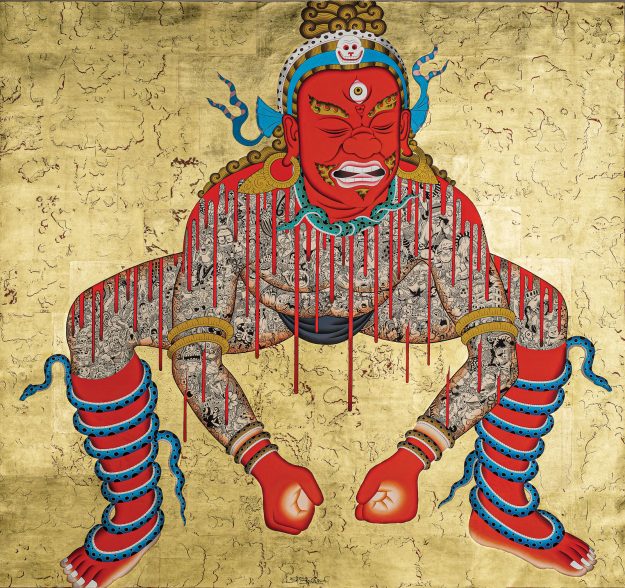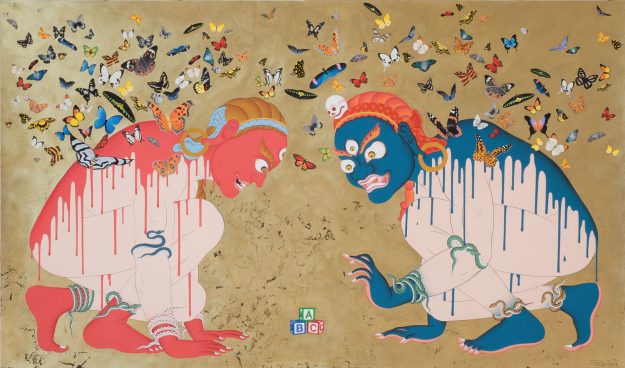Tibetan artist Tsherin Sherpa was born in Kathmandu, Nepal, in 1968. His father, Urgen Dorje, was a well-known artist who began teaching him Tibetan thangka (scroll) painting when he was 12 years old. Today, Sherpa uses the traditional techniques and motifs he learned from his father to explore the hybridization of cultures that followed the Himalayan diaspora.
Sherpa, who at the age of 30 moved from Nepal to California, is intimately familiar with the complexity of assimilation. In his paintings, cultures blend and clash, seeking the places where the sacred and profane collide. In Muted Expression, disembodied hands appear as a single entity, gesturing in ways reminiscent of traditional Buddhist mudras, while in paintings from his Spirit series, celestial beings appear in casual undressed poses with Warhol-like accessories (polka-dot underwear, for example) that redefine our sense of what subjects merit devotion.
Whatever the theme, Sherpa’s perspective remains rooted in his Tibetan identity. In an interview with Asia Art Archive in America, he recalled stories his grandmother told about Tibetan spirits and said, “I’ve always wondered what happened to these spirits when many of the families left their villages to go in exile—if they followed the people, how they functioned in this world, and how they would assimilate into different, non-local atmospheres.”
In his paintings, Sherpa imagines these spirits adjusting to a global society. Blind Spirits depicts two beings who oversee silhouettes of life on earth: people, animals, and mythical creatures from different cultures, along with humans wielding tools of warfare. The spirits’ facial expressions and the paint that drips over them evoke sensations of grief, while butterflies fly above them symbolizing change. In Two Spirits, two beings crouch on the ground examining blocks carved with the letters A, B, C. They engage on a basic level with the English language, attempting to acclimate themselves to a contemporary world. Such adaptation is necessary, Sherpa believes, if an ancient tradition like his own is to survive.
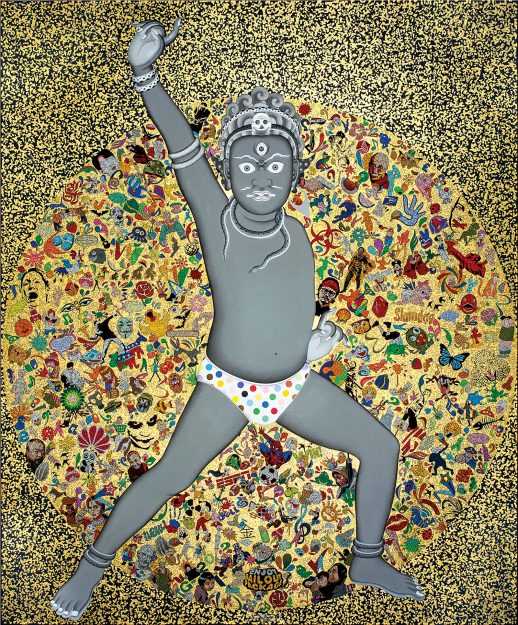
In his paintings, cultures blend and clash, seeking the places where the sacred and profane collide.
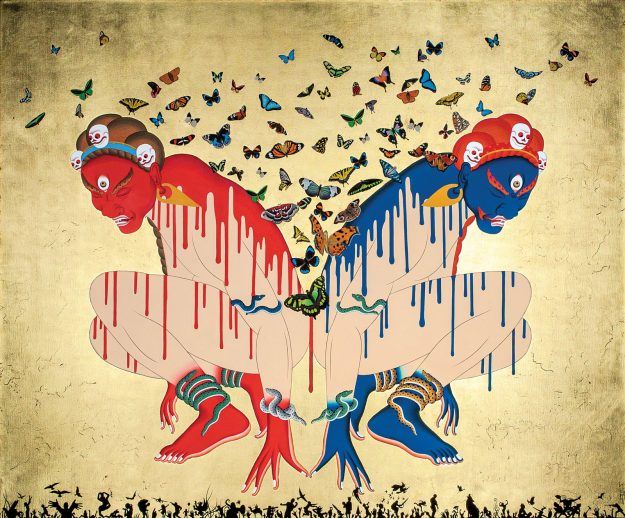
The spirits’ facial expressions and the paint that drips over them evoke sensations of grief, while butterflies fly above them symbolizing change.
